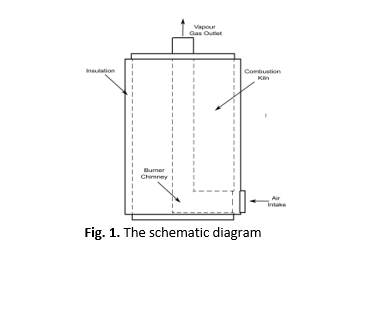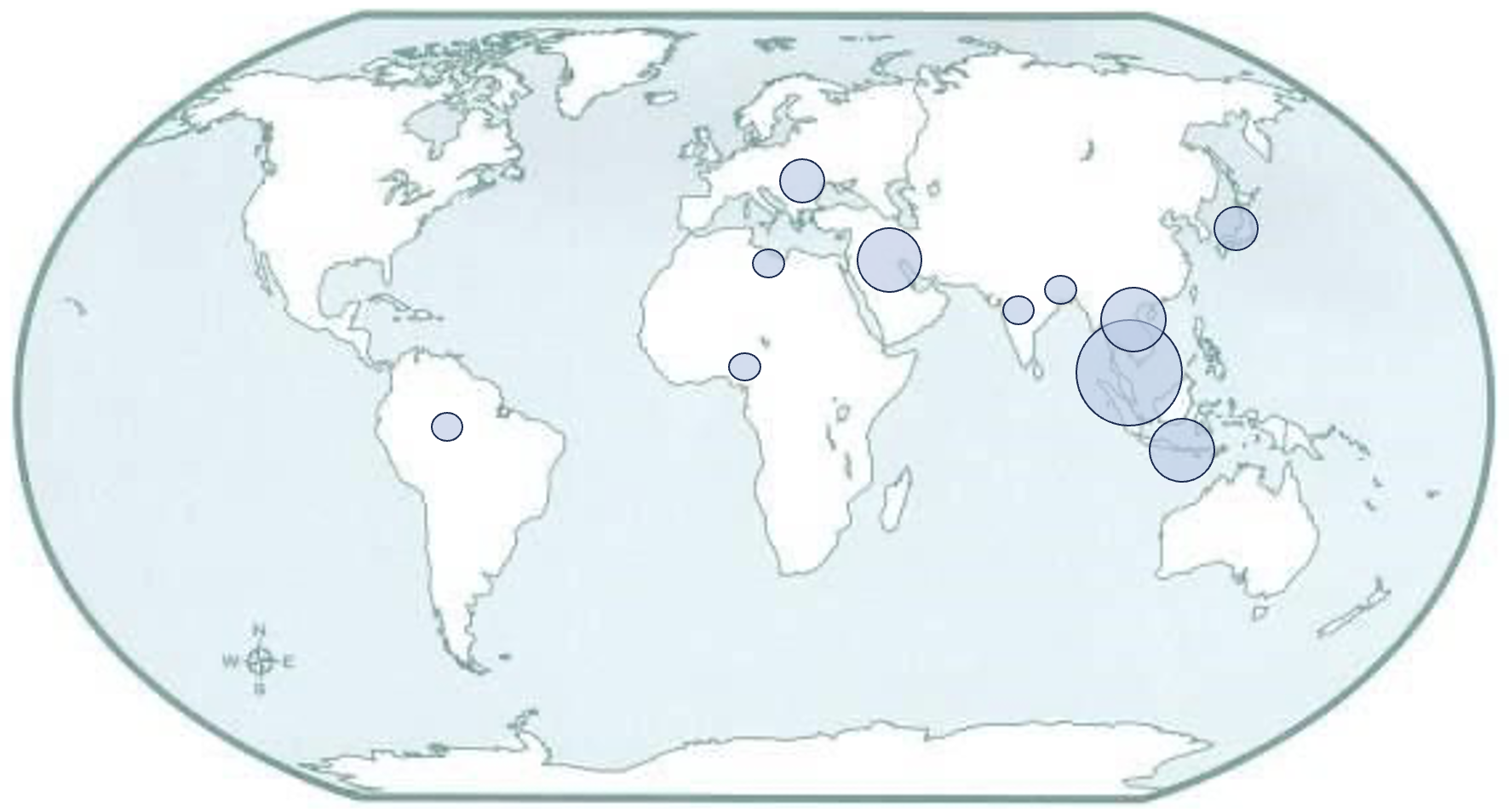Adiabatic Combustion Chamber Pyrolysis for Palm Kernel Shell Biochar Production
DOI:
https://doi.org/10.37934/arefmht.21.1.19Keywords:
Palm kernel shell (PKS), palm kernel shell charcoal, combustion chamber, pyrolysis, carbonization, temperature, resistance value, moisture content, calorific valueAbstract
The rapid expansion of the palm oil industry has raised concerns about the increasing generation of waste, particularly Palm Kernel Shells (PKS). However, these byproducts present promising opportunities for conversion into valuable resources such as charcoal. To facilitate this process, a combustion chamber was designed and constructed to conduct pyrolysis for PKS charcoal production. This study aims to evaluate the performance of the combustion chamber in consistently reaching and maintaining a temperature of 600 degree using mangrove wood as fuel. Additionally, the quality of PKS charcoal was assessed by measuring its electrical resistance with an ohm meter, providing a quantitative indicator of carbonization. The calorific value of charcoal briquettes produced from powdered PKS charcoal was also analysed. Performance testing of the combustion chamber revealed that it achieved a maximum temperature of 795 degree at T1 and 671 degree at T2 confirming its capability to sustain the pyrolysis process. The measured electrical resistance of the PKS charcoal was 1.73omega, indicating low resistance and, consequently, a high-quality charcoal product. The moisture content of the PKS charcoal was determined to be 4%, signifying a relatively low moisture level, which is crucial for maintaining high charcoal quality. Furthermore, the calorific value of the PKS charcoal was found to be 21.552 MJ/Kg, categorizing it as a moderate-to-high-quality fuel source. Charcoal with a higher calorific value releases more energy during combustion. In conclusion, this study demonstrates that palm kernel shell waste from the palm oil sector can be effectively converted into high-quality charcoal, highlighting its potential as a valuable and sustainable resource.
Downloads























